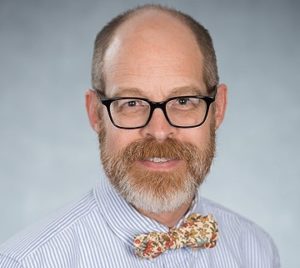
READINGS
First Reading: 1 Samuel 16: 1B, 6-7, 10-13
Responsorial Psalm 23: 1-3A, 3B-4, 5, 6
Second Reading: Ephesians 5: 8-14
Gospel: John 9: 1-41
I recently read about a rare condition called Anton-Babinsky syndrome. There have been about twenty-cases of this syndrome reported since Montaigne first mentioned it back in the 16th century. It occurs in people who have become blind because of a stroke or head trauma. The strange thing about Anton-Babinski syndrome is this: those who suffer from it are truly blind – they cannot see at all – but they adamantly affirm that they can, in fact, see. They behave and talk as if they are sighted, and they don’t tell anyone that they cannot see, but it becomes evident that they are sightless when they run into furniture or otherwise have difficulty getting around. When asked if they are having trouble seeing, they deny it. They will often affirm they are sighted by describing people and objects around them, which are either not there at all or are described incorrectly. Those with this syndrome genuinely believe, or want to believe, that they can see, when in fact they cannot. It seems they cannot even admit to themselves that they are blind.
Anton-Babinsky syndrome is a rare instance of being literally blind and either not knowing it or refusing to acknowledge it. Spiritual blindness is much more common. We all suffer from it to one degree or another, now and again, and often for a very long time. Conversion means, among other things, recognizing this and allowing God’s grace to overcome it. “I once was lost but now am found, was blind but now I see.”
The readings this week are all about seeing. God sees what Samuel can’t, because Samuel sees the appearance, but God sees the heart. Our passage from the Letter to the Ephesians mentions “light” six times, and contrasts this with the darkness that renders us blind to the ways of God. Jesus, “the light of the world,” cures a blind man “so that the works of God might be made visible through him.”
When the blind man regains his sight, those who are able to see what this means have their eyes further opened – they are able to recognize that God is at work in Jesus. But those who are not able to see, who are not willing to see, who just cannot bring themselves to see that Jesus cured the man, remain blind to the works of God made visible right before their eyes.
And why? Because they have already made up their minds about Jesus. “This man is not from God, because he does not keep the Sabbath.” When others suggest they might be wrong about him after all (“How can a sinful man do such signs?”), they refuse to change their minds. Instead, they suggest that the man had not been blind in the first place. Faced with evidence that they are wrong, they refuse to consider the possibility. They are absolutely certain that they already see the truth about Jesus. And so he tells them that although they insist, “We see,” they are in fact completely blind. They have spiritual Anton-Babinsky syndrome.
Well, it’s Lent, so let’s challenge ourselves on this point. How many times have we refused to see the good God does in others because of decisions we have already made about them? How often do we let appearances, our notions of who is “good” and who is “bad,” who is “right” and who is “wrong,” prevent us from being open to the possibility that God just might be working through them? How often do we go stumbling around, bumping into things, refusing to admit that we don’t see as well as we think we do?
I do it. Maybe you do it too, at least from time to time?
How often might we catch ourselves ignoring the light of Christ shining right in front of us in the form of the liberal Catholic, the traditional Catholic, the atheist, the annoying-person-not-like-me in the room? Not that we don’t “love” them (of course we do!), but we certainly aren’t going to listen to anything they have to say. How could they possibly be right in this case, when they are so clearly wrong about everything else?
My name is John Barker, and I have spiritual Anton-Babinsky syndrome.
This week we are presented once again with the opportunity to ask God to show us where we are blind. Blind to the surprising and often exceedingly challenging ways that God comes to us, speaks to us, corrects us, tries to push us back onto the right path. Blind to the truth that we see more by appearance than we would like to admit. Blind to the fact that we might be suffering from our own, not-so-rare form of Anton-Babinsky syndrome.
“Amazing grace, how sweet the sound, that saved a wretch like me. I once was lost but now am found, was blind but now I see.”
Br. John R. Barker, OFM
Associate Professor of Old Testament Studies
Chair of Biblical Literature and Language